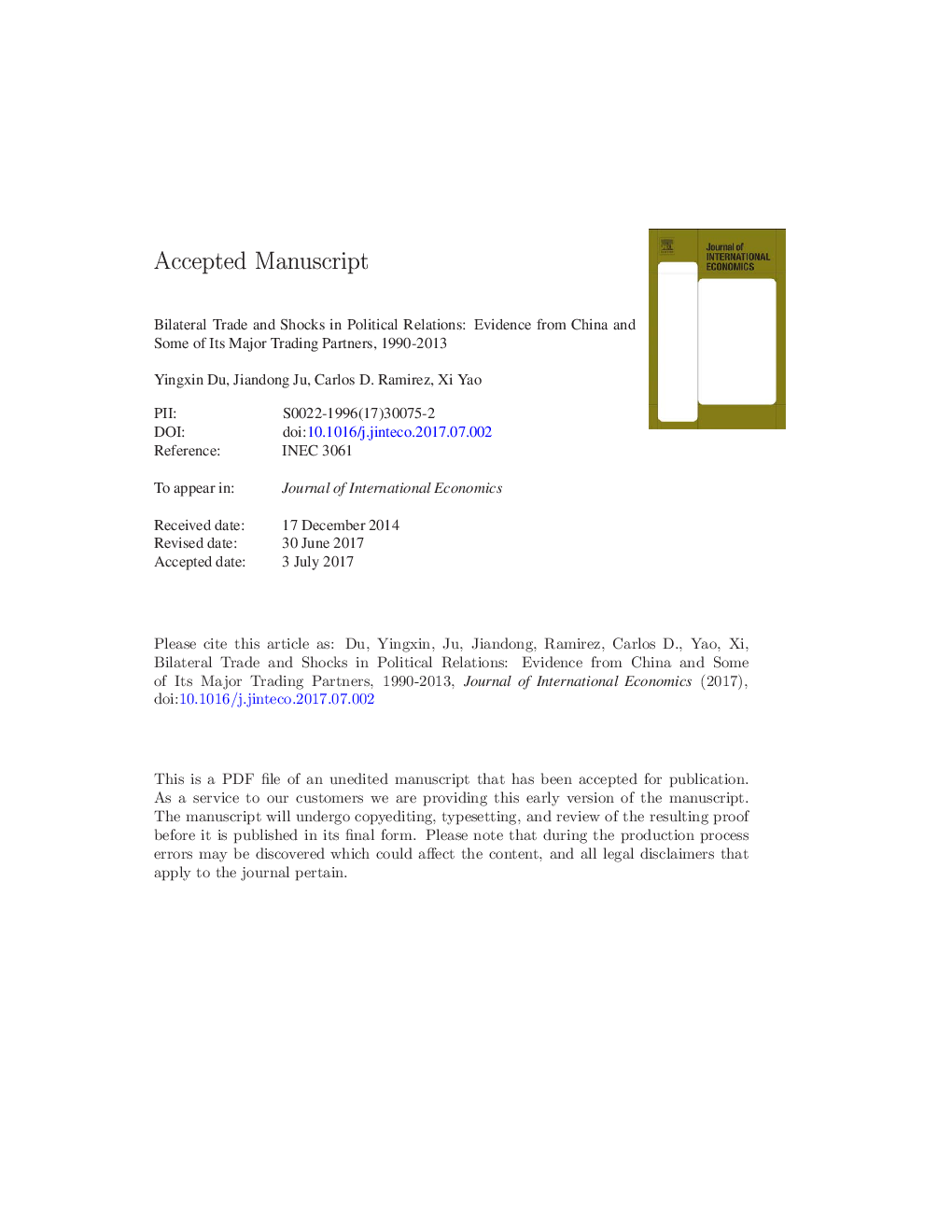| Article ID | Journal | Published Year | Pages | File Type |
|---|---|---|---|---|
| 5100903 | Journal of International Economics | 2017 | 75 Pages |
Abstract
An extensive number of studies investigate the effects of political relations on trade by estimating a gravity model using annual (or quarterly) data. We argue that the use of low-frequency data introduces an aggregation bias because the cycle of moderate political shocks is much shorter (measured in weeks). Using monthly data from 1990 through 2013 for China, we estimate a model of political relations and conclude that political shocks are short-lived. Narrative evidence from two case studies illustrates the transitory nature of these shocks. A VAR model shows that although political shocks influence exports to China, the effects largely vanish within two months. A comparison of the monthly- and annual-frequency gravity equation regressions illustrates the effects of temporal aggregation.
Keywords
Related Topics
Social Sciences and Humanities
Economics, Econometrics and Finance
Economics and Econometrics
Authors
Yingxin Du, Jiandong Ju, Carlos D. Ramirez, Xi Yao,
